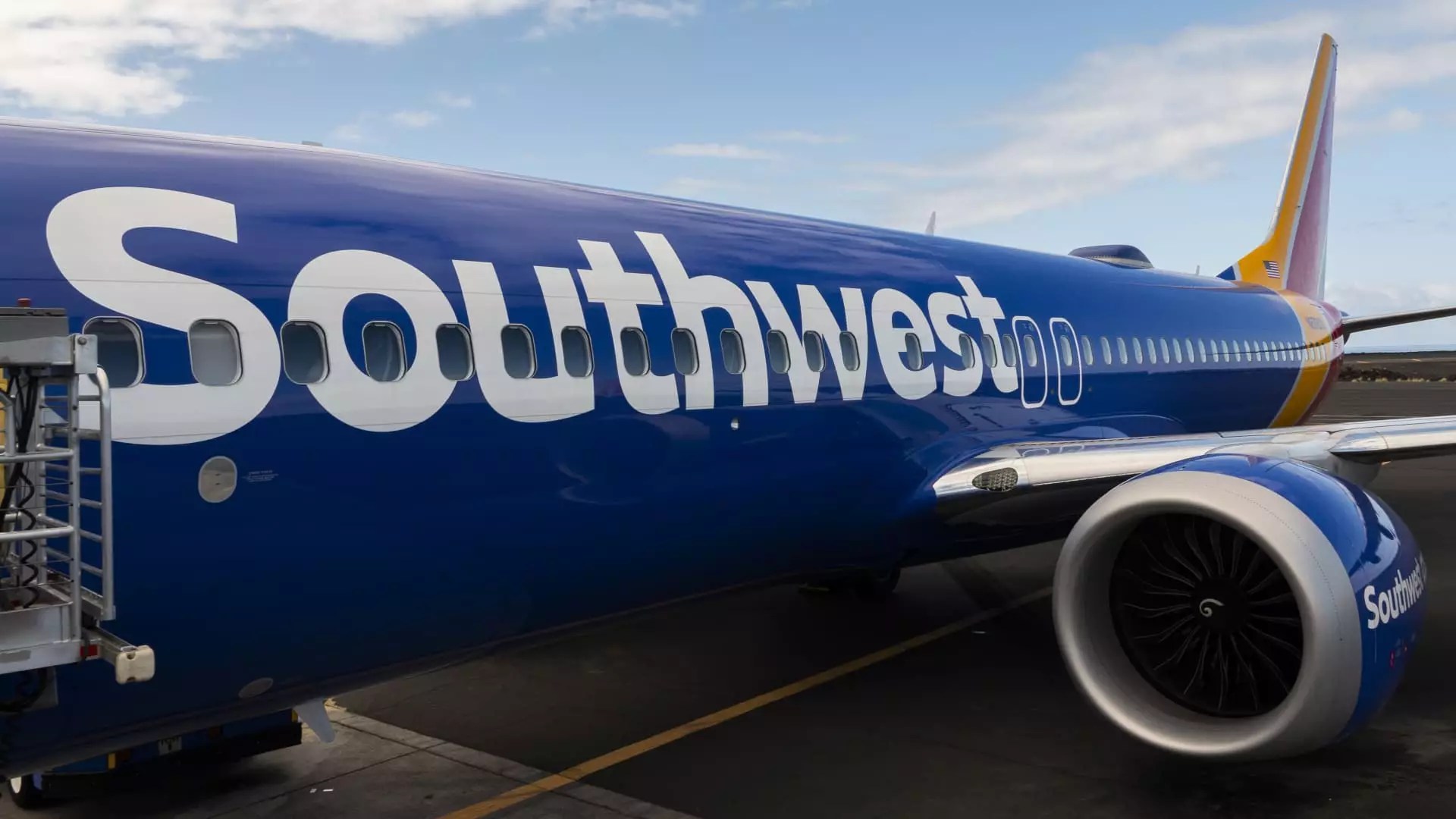Southwest Airlines recently experienced a significant drop in its shares, with a roughly 4% decrease in premarket trading. This decline was a result of the carrier cutting its second-quarter revenue forecast due to changing booking patterns. The airline now expects a decrease in revenue per available seat mile by as much as 4.5%, compared to its previous estimate of a 1.5% to 3.5% decline. Additionally, unit expenses, excluding fuel, are anticipated to increase by up to 7.5% over the year-earlier period, a significant change from the previous expectation of no change.
Southwest Airlines also updated its capacity forecast, with an expected rise of up to 9% instead of the flat growth initially projected. This increase in capacity reflects the evolving landscape of the airline industry, where carriers are facing challenges such as higher costs and growth that impact fares and profitability. Despite these challenges, Southwest still expects to achieve record quarterly operating revenue in the second quarter.
While Southwest Airlines is grappling with changing booking patterns and revenue forecasts, other carriers like Delta and United are benefiting from passengers’ return to international travel. These airlines have invested heavily in offering premium services and amenities, attracting travelers willing to pay more for a better experience. In contrast, Southwest is under pressure from activist investor hedge fund Elliott Management, which is advocating for a change in leadership, citing underperformance.
Southwest Airlines is considering new revenue initiatives, such as seating assignments or premium seating, to address the challenges posed by changing booking patterns and increased competition. These potential changes mark a departure from the airline’s traditional business model, which has been successful for decades. Despite the uncertainty and pressure from investors, Southwest remains committed to adapting to its customers’ evolving needs and preferences.
The impact of changing booking patterns on Southwest Airlines is evident in its revised revenue forecast, capacity adjustments, and competitive positioning in the airline industry. As the company navigates through these challenges, it is crucial for Southwest to innovate and evolve while staying true to its commitment to customer satisfaction and operational excellence.


Leave a Reply